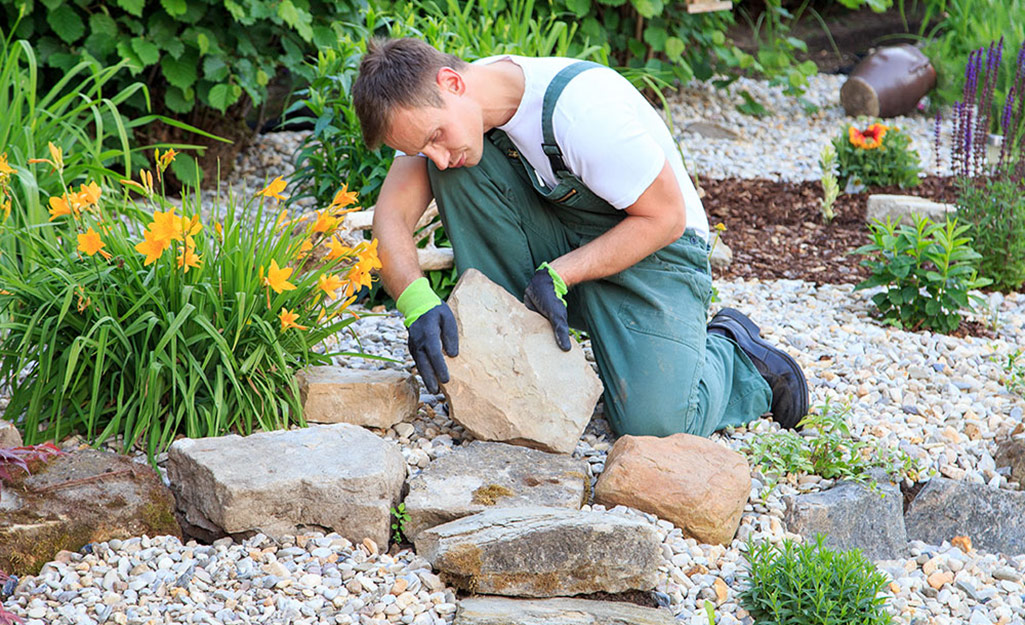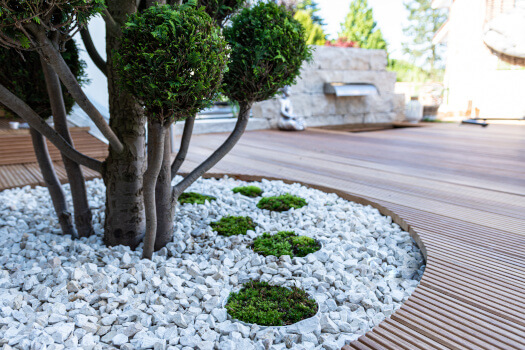Welcome to the world of decorative stones! If you’re looking to enhance your garden’s aesthetic appeal, you’ve come to the right place. As someone who has spent years experimenting with different landscaping materials, I can attest that decorative stones can dramatically improve the appearance and functionality of your outdoor spaces. In this article, we’ll explore the various types of decorative stones, their uses, benefits, and how to incorporate them into your garden design.
What Are Decorative Stones?
Decorative stones are naturally occurring or manufactured stones that serve aesthetic and functional purposes in landscaping. They are available in various colors, shapes, and sizes, allowing you to create unique designs tailored to your garden’s theme.
Types of Decorative Stones
There are several types of decorative stones you can choose from, each offering unique characteristics. Below, I’ve categorized them into three primary types:
1. Natural Stones
Natural stones are quarried from the earth, providing an organic look that blends seamlessly with gardens.
- Granite: Durable and available in various colors, ideal for pathways.
- Slate: A metamorphic rock that offers a rustic look and is perfect for decorative features.
- River Rocks: Smooth stones that come in various sizes, great for filling empty spaces or around water features.
2. Crushed Stones
Crushed stones are small pieces created by crushing larger stones. They’re versatile and ideal for ground cover.
- Decomposed Granite: Ideal for pathways and garden beds, providing excellent drainage.
- Pea Gravel: Small round stones that are soft underfoot, perfect for walkways.
3. Decorative Gravel
Decorative gravel is typically made from a variety of materials, including marble or colored stone, and is often used as ground cover or in borders.
- Colored Gravel: Available in vibrant shades to create eye-catching designs.
- Marble Chips: Elegant and sophisticated, often used in modern garden designs.

Benefits of Using Decorative Stones in Your Garden
Incorporating decorative stones into your garden has multiple benefits:
1. Aesthetic Appeal
Decorative stones can enhance the beauty of your garden, offering endless design possibilities. Whether you choose a rustic look with natural stones or a modern style with polished gravel, the right choice can create a stunning focal point.
2. Low Maintenance
Unlike grass or flowering plants, decorative stones do not require regular watering, mowing, or fertilizing, making them a low-maintenance option.

3. Soil Erosion Prevention
Using decorative stones can help prevent soil erosion by stabilizing the ground, especially on slopes or in areas prone to runoff.
4. Versatile Applications
From pathways and borders to drainage solutions and decorative features, decorative stones can be used in various ways throughout your garden.

How to Choose the Right Decorative Stones for Your Garden
Choosing the right stones involves considering several factors:
1. Purpose
Are you looking to create a pathway, a flower bed, or merely want to enhance the visual appeal? Identifying the purpose will help you make better choices.

2. Color and Texture
Consider the overall theme of your garden. Do you prefer earthy tones or vibrant colors? The texture also plays a critical role; smooth stones can create a modern look, while rough stones give a more rustic feel.
3. Size
Different areas in your garden will require different stone sizes. Larger stones can serve as eye-catching features, while smaller stones may be better for pathways.

4. Budget
Prices for decorative stones can vary significantly. Set a budget before you begin shopping to help you narrow down your options.
Incorporating Decorative Stones: Design Ideas
Decorative stones can be used in numerous innovative ways. Here are some design ideas to inspire you!

1. Pathways and Walkways
Creating a pathway is one of the most straightforward applications of decorative stones. Use flat stones for a natural look or crushed stone for a casual path through a flower garden.
2. Borders and Edging
Define your flower beds or garden sections by using decorative stones as borders. This not only adds structure but also keeps mulch and soil in place.

3. Rock Gardens
Rock gardens are a beautiful way to incorporate various types of stones. Mix large boulders with smaller gravel to create a dynamic landscape.
4. Water Features
Enhance ponds or fountains with decorative stones around the edges, or use larger stones as part of a waterfall feature.
Comparison of Popular Decorative Stones
| Type of Stone | Best Use | Pros | Cons |
|---|---|---|---|
| Granite | Pathways | Durable, variety of colors | Can be expensive |
| Slate | Decorative accents | Unique textures, colors | May crack in extreme weather |
| Decomposed Granite | Ground cover, pathways | Excellent drainage | Can wash away in heavy rain |
| River Rocks | Pond edging | Smooth appearance | Can be heavy to move |
Installation Guide for Decorative Stones
Installing decorative stones can be straightforward if you follow these steps:
1. Plan Your Design
Sketch your garden layout, noting where you want to position the stones.
2. Prepare the Site
Clear the area of weeds and debris. You may want to lay down landscaping fabric to prevent growth beneath your stones.
3. Level the Ground
Use a shovel to level the ground for an even surface.
4. Lay the Stones
Place your stones or gravel in the desired pattern. For pathways, ensure they’re packed tightly together.
5. Finishing Touches
Once everything is in place, clean up the edges and enjoy your new garden feature!
Common FAQs About Decorative Stones
What is the best type of decorative stone for a garden path?
For garden paths, decomposed granite and pea gravel are popular choices because they provide good drainage and a natural look.
Are decorative stones eco-friendly?
Yes, decorative stones are an eco-friendly option as they do not require watering, fertilizers, or chemicals to maintain their appearance.
How do I maintain my decorative stones?
Occasional raking may be necessary to keep the stones looking neat. Remove weeds and debris as needed, and replenish stones that may have shifted over time.
Conclusion
Decorative stones are a versatile and beautiful addition to any garden. They allow for creativity in design and offer numerous practical benefits. I hope this guide inspires you to explore the many ways that decorative stones can enhance your outdoor spaces. Whether you’re looking to create a serene rock garden or a sturdy pathway, the possibilities are endless!
Happy gardening!